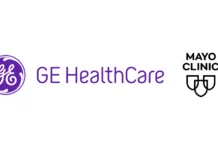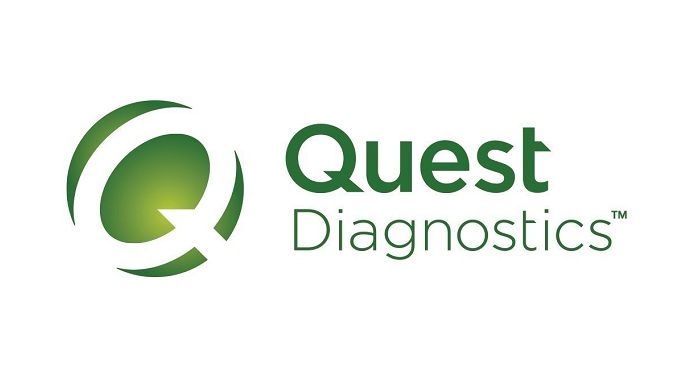Quest Diagnostics, a leader in diagnostic information services, and PathAI, a global provider of artificial intelligence-powered technology for pathology, a multi-faceted collaboration designed to accelerate the adoption of digital and AI pathology innovations to improve quality, speed and efficiency in diagnosing cancer and other diseases.
Under the terms of a definitive agreement, Quest will acquire select assets of PathAI Diagnostics, the business of PathAI that provides anatomic and digital pathology laboratory services. At closing, PathAI Diagnostics’ state-of-the-art digitized laboratory in Memphis, Tennessee will become Quest’s AI and digital R&D and solutions center, supporting Quest’s specialty pathology businesses, AmeriPath and Dermpath Diagnostics. PathAI will continue to support its biopharmaceutical clients with end-to-end clinical trial services capabilities at its biopharma lab, which is separate and distinct from the diagnostic laboratory business. The transaction is expected to be completed in the second quarter of 2024.
Under separate agreements, Quest will license PathAI’s AISight™ digital pathology image management system to support its pathology laboratories and customer sites in the United States. The two entities may also pursue opportunities for Quest to aid PathAI’s algorithm product development, drawing on Quest’s deep pathology leadership. In addition, Quest will be a preferred provider for PathAI’s biopharmaceutical clinical laboratory services.
“This transaction will enable Quest to dramatically ramp our capabilities in AI and digital pathology, building on our leadership in oncology and subspecialized pathology services,” said Kristie Dolan, Senior Vice President, Oncology, Quest Diagnostics. “AI and digital technologies have tremendous potential to improve cancer care, and Quest has the know-how to scale and deliver innovations that are high quality, efficient and broadly accessible. PathAI has industry-leading expertise in AI pathology innovation, and their state-of-the-art digitized laboratory in Memphis provides a platform for future growth.”
“At Quest Diagnostics, we are committed to maximizing patient impact from every precious sample,” said Mark Gardner, Senior Vice President, Molecular Genomics and Oncology, Quest Diagnostics. “The relationship with PathAI and acquisition of PathAI Diagnostics will enable us to rapidly accelerate the adoption of digitization and artificial intelligence for our market leading pathology offering, and will therefore strengthen our capability to serve patients across the entire continuum of oncology care, from diagnosis, to prognosis, to therapy selection and patient monitoring.”
“This strategic relationship represents a significant milestone for the anatomic pathology industry and marks a major turning point for digital pathology adoption in the U.S. The adoption of these technologies by an organization with the scale and breadth of capabilities of Quest is a clear demonstration of how PathAI’s cutting-edge solutions can help address the market’s need for more efficient and high-quality pathology operations,” said Andy Beck, MD PhD, co-Founder and CEO of PathAI. “The PathAI Diagnostics laboratory in Memphis will allow Quest to accelerate its digital journey with an already digitized laboratory.”
According to the American Cancer Society, 2024 will be the first year that the United States expects more than 2 million new cases of cancer. The global cancer burden is expected to reach 28.4 million cases in 2040, compared to 19.3 million in 2020, according to the International Agency for Research on Cancer.
The next phase in cancer innovation unlocked by digital pathology
Cancer and other diseases are often diagnosed by a pathologist based on a visual review of a biopsied tissue mounted on a glass slide, and reviewed under a microscope for abnormalities. If multiple pathologists need to view the slide, such as for a second opinion, the tissue biopsy must be physically couriered to another pathologist.
Digital pathology enables the creation of digital images of glass slides that can be securely shared electronically with other pathologists to view, reducing transportation needs and speeding testing and results reporting. It also has the advantage of extending access to expert consults to geographic areas where pathologists are in short supply, such as in parts of rural America and internationally. It may also help alleviate workforce pressures due to a shortage of pathologists and histotechnologists, the skilled laboratory professionals who prepare tissue slides.
“Digital pathology will strengthen our ability to offer flexible solutions that fulfill the needs of today’s hospital laboratories. For instance, many hospital labs are facing a shortage of histotechs. With digital pathology, these labs can refer slide preparation to us while continuing to perform professional interpretation in-house,” Ms. Dolan added. “Digital pathology will also allow us to extend the interpretative expertise of our roughly 400 pathologists to hospitals and other labs who lack these skilled professionals on-staff, regardless of location.”
AI builds upon digital pathology by identifying patterns in a digitized image that suggest cancer or other diseases, helping a pathologist concentrate on areas of concern for potentially more accurate diagnosis.
Quest has a long history of strategic AI and automation deployment. The company has implemented AI, digital and automation technologies across several laboratory and business functions, from microbiology and cytogenetics to specimen processing and customer service, improving quality, efficiency and customer and employee experiences.
The transaction also builds on Quest’s deep expertise and scale in cancer, with approximately 400 pathologists serving top health systems in the U.S. In recent years, Quest has piloted digital and AI pathology oncology solutions at Quest and AmeriPath sites in Clifton, NJ, Tampa and Denver.
Over time, Quest expects the transaction with PathAI will enable it to deploy flexible digital slide preparation and diagnostic and second opinion consultation services to health systems and other providers, both in the United States and, through its Global Diagnostic Network, overseas. The acquisition will also extend Quest’s anatomic pathology services into comparatively more profitable areas, including dermatopathology as well as gastrointestinal and urological diseases. Provider customers of PathAI Diagnostics will benefit from access to Quest’s industry-leading clinical test menu, broad health plan relationships and approximately 2,000 patient service centers in the U.S.


















